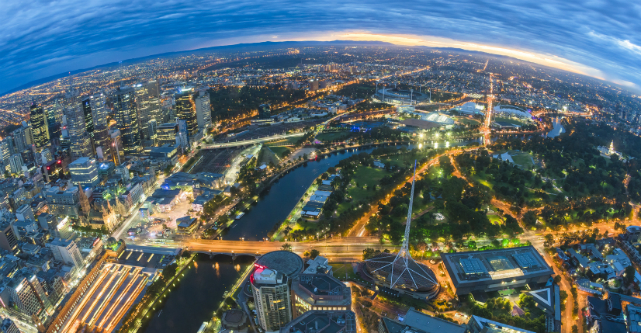
Four billion dollars. That’s how much economic value could be created by the startup ecosystem in Victoria over the next several years.
This estimate comes from a new report, commissioned by government body LaunchVic and published by Startup Genome, on the present and future of the startup ecosystem in Melbourne.
The projected economic value of $4 billion comes from the Success Factor model that Startup Genome uses to assess and benchmark cities and regions all over the world. Economic value and jobs are generated when technology-based startups grow rapidly to become “scaleup” companies, eventually achieving an exit in the form of a public listing or acquisition.
In Australia, where an estimated 40% of jobs could become obsolete within the next decade or so, this type of economic growth is essential to sustaining job security and economic opportunity.
Although the country hasn’t suffered a recession in 25 years, and Victoria and other states enjoy strong job growth, the economy is not as future-proofed as it could be. The sources of this growth — real estate and mining — will eventually run their course. Future economic growth must be driven more by technology and innovation: startups, and environments that support their growth and success, are the key to managing this economic transition.
But why do exits and startups matter? Aren’t those exactly what threatens existing jobs? Doesn’t the wealth from acquisitions and public listings get captured only by a handful of people? Startups only create a few handfuls of jobs anyway, right?
Startups — and the scaleup firms that a handful of them become — create jobs both directly and indirectly. Technology startups may strike policymakers and others as small, especially when compared to large firms in mining and the sheer size of the real estate sector, but technology jobs have a much higher multiplier effect than other sectors. Every technology job in a startup has been estimated by economist Enrico Moretti to create an additional five jobs in other parts of the economy, both skilled and unskilled. This is three times higher than manufacturing jobs.
In Victoria alone, three significant success stories — Seek, Carsales.com, and REA Group — have created thousands of new jobs directly, supporting tens of thousands more through this multiplier effect. They have created billions of dollars in value that has found its way to employees, pensioners, and government coffers.
These companies also help extend the global brand of Victoria and Australia. Today, the founders and executives of these and other successful technology companies are helping cultivate the next generation of startups.
This is the opportunity facing Melbourne and Victoria: if the region can sustain and increase the recent growth of its startup ecosystem, that $4 billion economic potential can be realised.
Momentum is strong: in the last few years, growth in the number of tech startups and the amount of early-stage funding for those startups has outpaced most of the world. In early-stage funding alone, Melbourne is ranked in the top 10 globally. The region’s high quality of life and strong global connections provide optimism that such growth can continue.
Still, challenges exist. Startup ecosystems can stall, some can shrink, and economic value can be diminished. This is the risk inherent in all industries.
Public policymakers in Victoria can ensure this does not happen by providing more support — both financial and non-financial — to startups. As the Startup Genome report outlines, such support might require additional public investment: despite recent growth, it appears from the analysis as if Melbourne faces a relative gap in early-stage funding compared to other cities. However, the way such funding is structured is usually more important than the amount — and the report outlines different ideas.
Continued support for startups might also involve legal and policy changes. Universities in Victoria produce impressive volumes of world-leading research, but commercialisation of that research appears to be a challenge. In interviews conducted for the report, we heard repeatedly about how difficult universities make it for potential entrepreneurs or industrial partners. Policymakers can, and should, experiment with different approaches to commercialisation. It is but one way to unlock all that economic potential.
The good news is that investments in the startup ecosystem offer much better economic returns than alternatives. Those returns might not always be as visible — a new hospital or auto-manufacturing plant is perhaps more tangible (and more familiar) to public officials and voters than a new co-working centre with a few dozen people huddled over laptops, or a biotech and robotics prototyping lab. For the coming economic challenges in Victoria and Australia, however, few actions will result in as much economic prosperity as support for startups and the broader ecosystem they operate in.


COMMENTS
SmartCompany is committed to hosting lively discussions. Help us keep the conversation useful, interesting and welcoming. We aim to publish comments quickly in the interest of promoting robust conversation, but we’re a small team and we deploy filters to protect against legal risk. Occasionally your comment may be held up while it is being reviewed, but we’re working as fast as we can to keep the conversation rolling.
The SmartCompany comment section is members-only content. Please subscribe to leave a comment.
The SmartCompany comment section is members-only content. Please login to leave a comment.